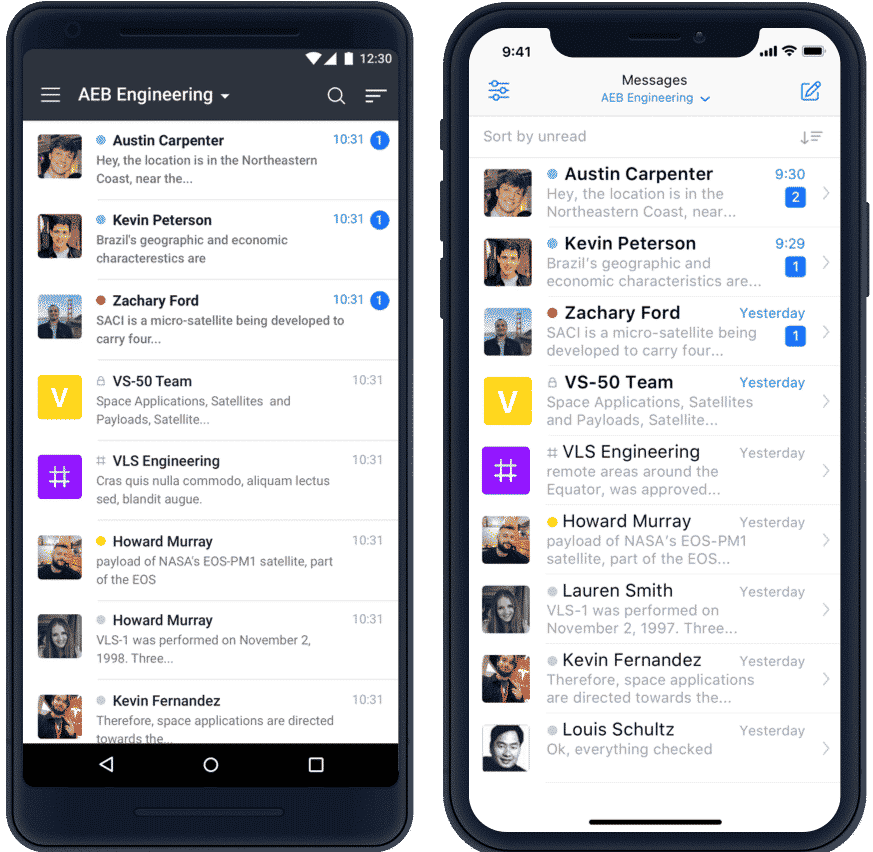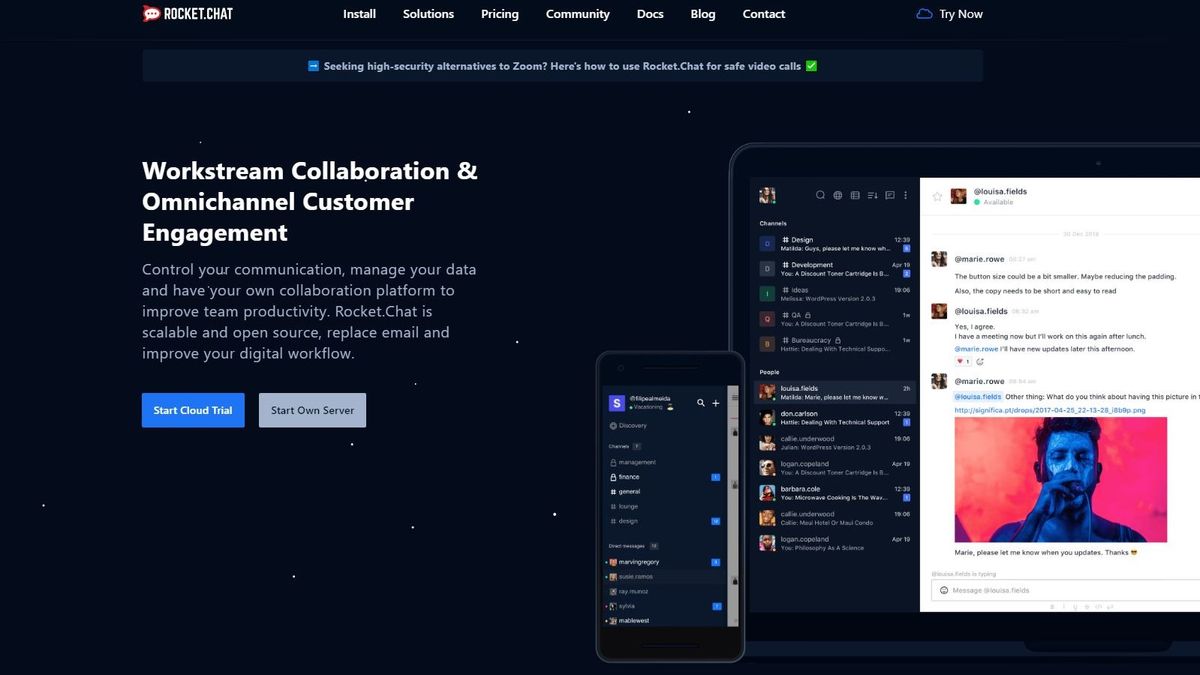

#Rocketchat livechat code
If you like Certbot, please consider supporting our work by: Donating to ISRG / Let's Encrypt: Donating to EFF: Copy code

This configuration directory will also contain certificates and private keys obtained by Certbot so making regular backups of this folder is ideal. Build and Integrate: Do more with RocketChat using Apps, Webhooks, Livechat and Rest APIs.
#Rocketchat livechat full
You should make a secure backup of this folder now. RocketChat Live Chat is a chat service software developed in JavaScript using a full stack framework, RocketChat is one of the feature-rich open source alternatives to communicate and collaborate with your team, share files, chat in real time, or switch to video/audio conferencing. To non-interactively renew *all* of your certificates, run "certbot renew" - Your account credentials have been saved in your Certbot configuration directory at /etc/letsencrypt. To obtain a new or tweaked version of this certificate in the future, simply run certbot again with the "certonly" option. Select the appropriate number then (press 'c' to cancel): 2 <- press "2" to automatically redirect all traffic to a secured connection or "1" to disable automatic redirection Redirecting all traffic on port 80 to ssl in /etc/nginx/sites-enabled/ - Congratulations! You have successfully enabled You should test your configuration at: - IMPORTANT NOTES: - Congratulations! Your certificate and chain have been saved at: /etc/letsencrypt/live//fullchain.pem Your key file has been saved at: /etc/letsencrypt/live//privkey.pem Your cert will expire on. You can undo this change by editing your web server's configuration.
#Rocketchat livechat install
Choose this for new sites, or if you're confident your site works on HTTPS. Deployment Method: Individual Install, Upgrade, & Uninstall To install Rocket.Chat, run the following command from the command line or from PowerShell: To. 2: Redirect - Make all requests redirect to secure HTTPS access. 1: No redirect - Make no further changes to the webserver configuration. Cleaning up challenges Deploying Certificate to VirtualHost /etc/nginx/sites-enabled/ Please choose whether or not to redirect HTTP traffic to HTTPS, removing HTTP access. Step 4: Select the data you want to send from one app to the other. Step 3: Choose a resulting action from the other app. Step 2: Pick one of the apps as a trigger, which will kick off your automation. Step 1: Authenticate LiveChat and Rocket.Chat (Legacy). Which names would you like to activate HTTPS for? - 1: - Select the appropriate numbers separated by commas and/or spaces, or leave input blank to select all options shown (Enter 'c' to cancel): 1 <- Press "1" to request the certificate for the configured domain name Obtaining a new certificate Performing the following challenges: http-01 challenge for Waiting for verification. How LiveChat + Rocket.Chat (Legacy) Integrations Work. (Y)es/(N)o: n <- press "y" if you want to share your email address with the EFF. You must agree in order to register with the ACME server at - (A)gree/(C)ancel: a <- Press "a" to agree to the terms of Service of Let's Encrypt - Would you be willing to share your email address with the Electronic Frontier Foundation, a founding partner of the Let's Encrypt project and the non-profit organization that develops Certbot? We'd like to send you email about our work encrypting the web, EFF news, campaigns, and ways to support digital freedom.

public async executor( context: SlashCommandContext, read: IRead, modify: IModify, http: IHttp, persistence: IPersistence): Promise // end of function block This file would have an executor function that tells the app what to do when someone sends a /meme within a channel. To code the slash command, create a commands directory and a meme.ts file within it.


 0 kommentar(er)
0 kommentar(er)
